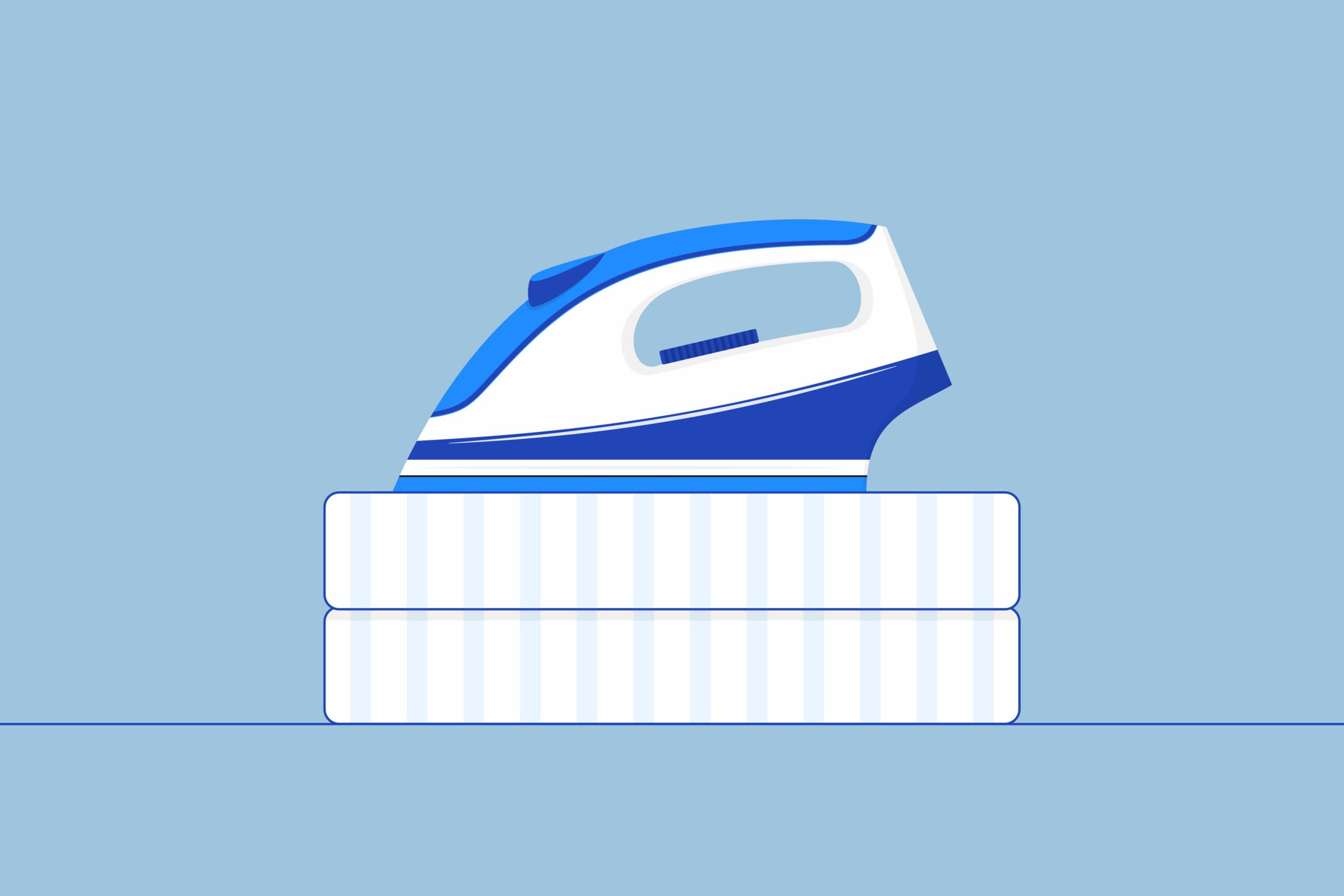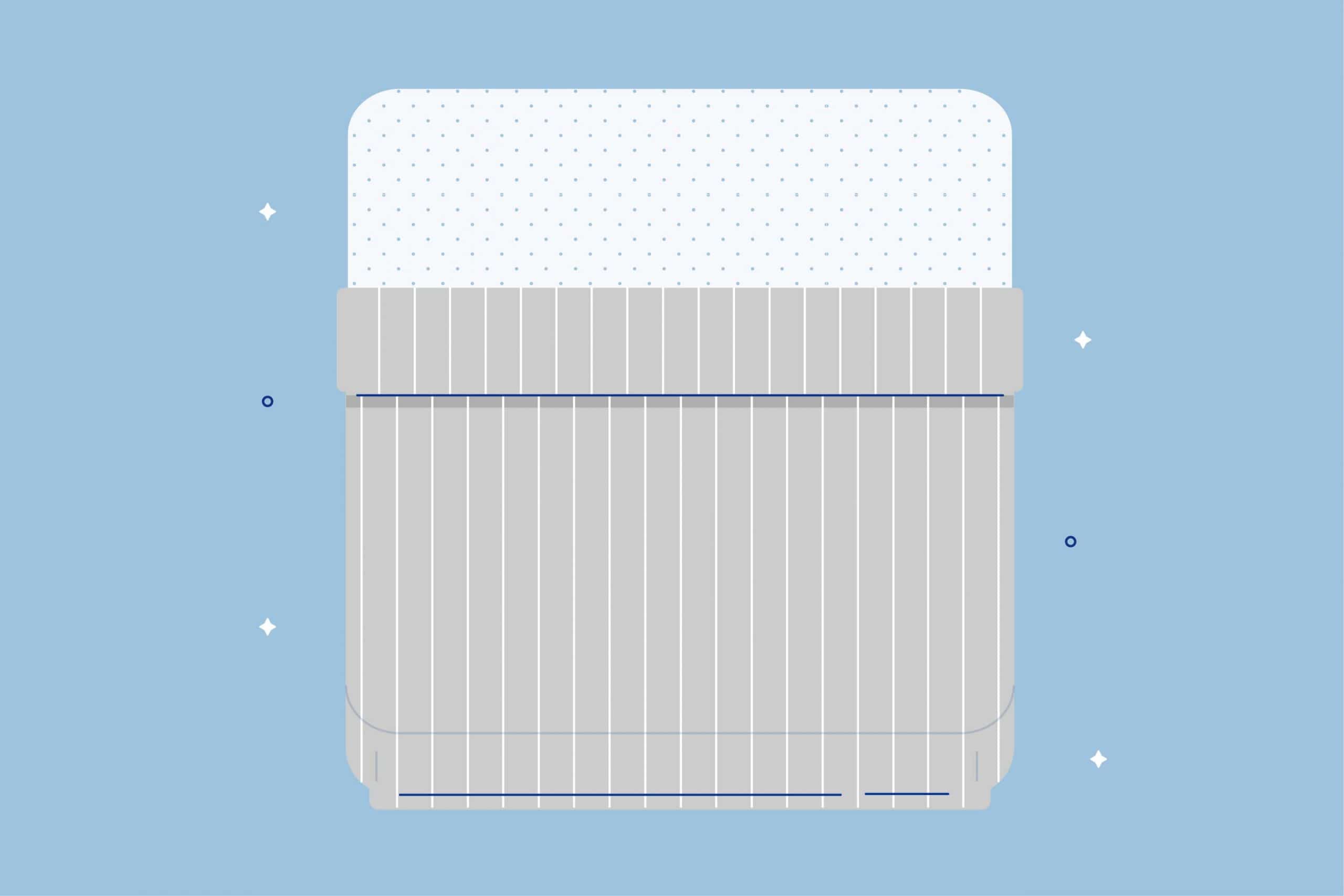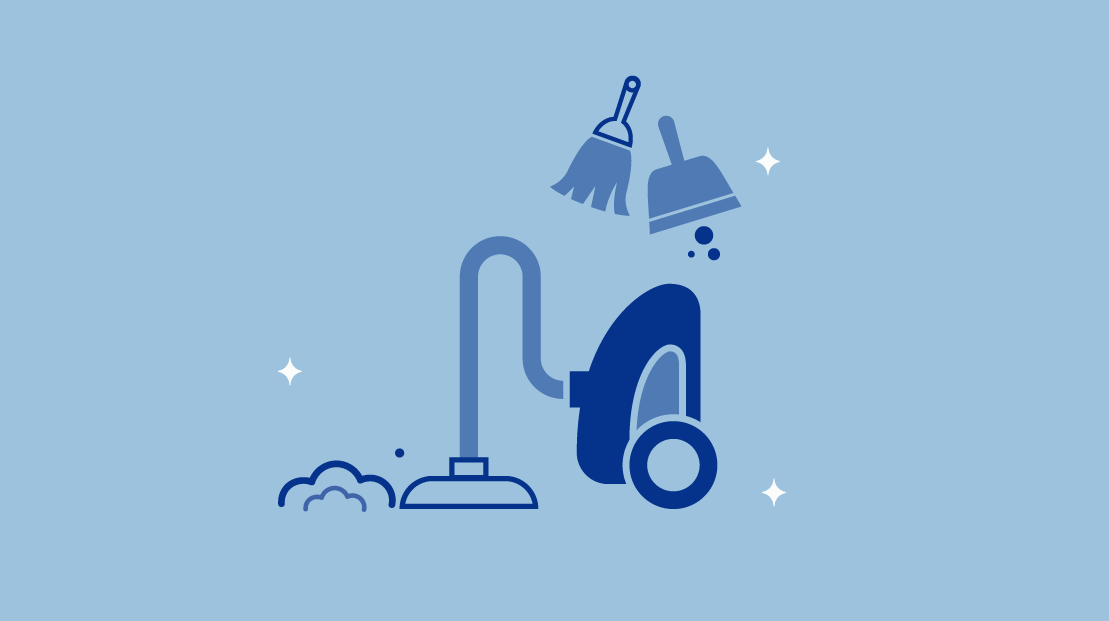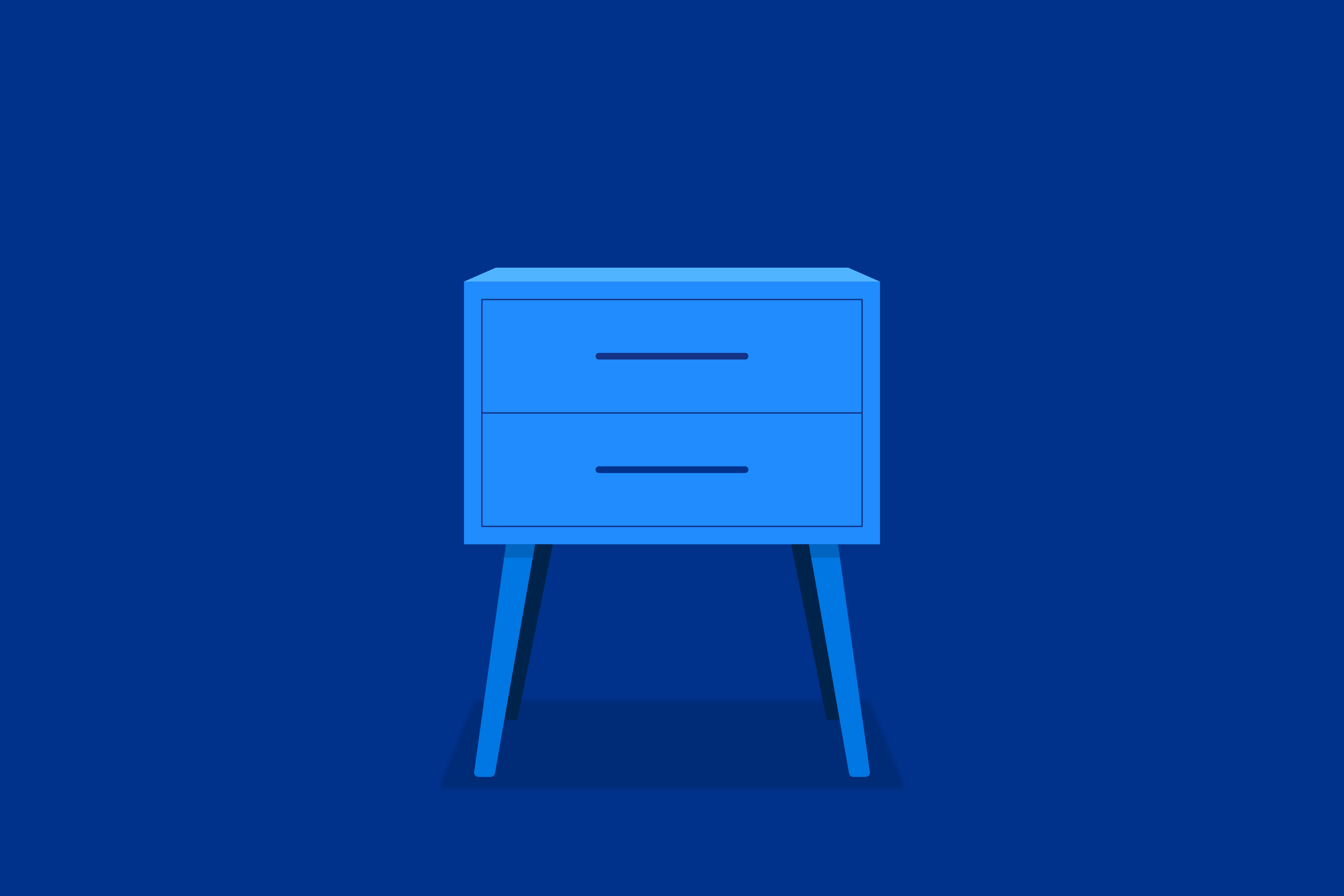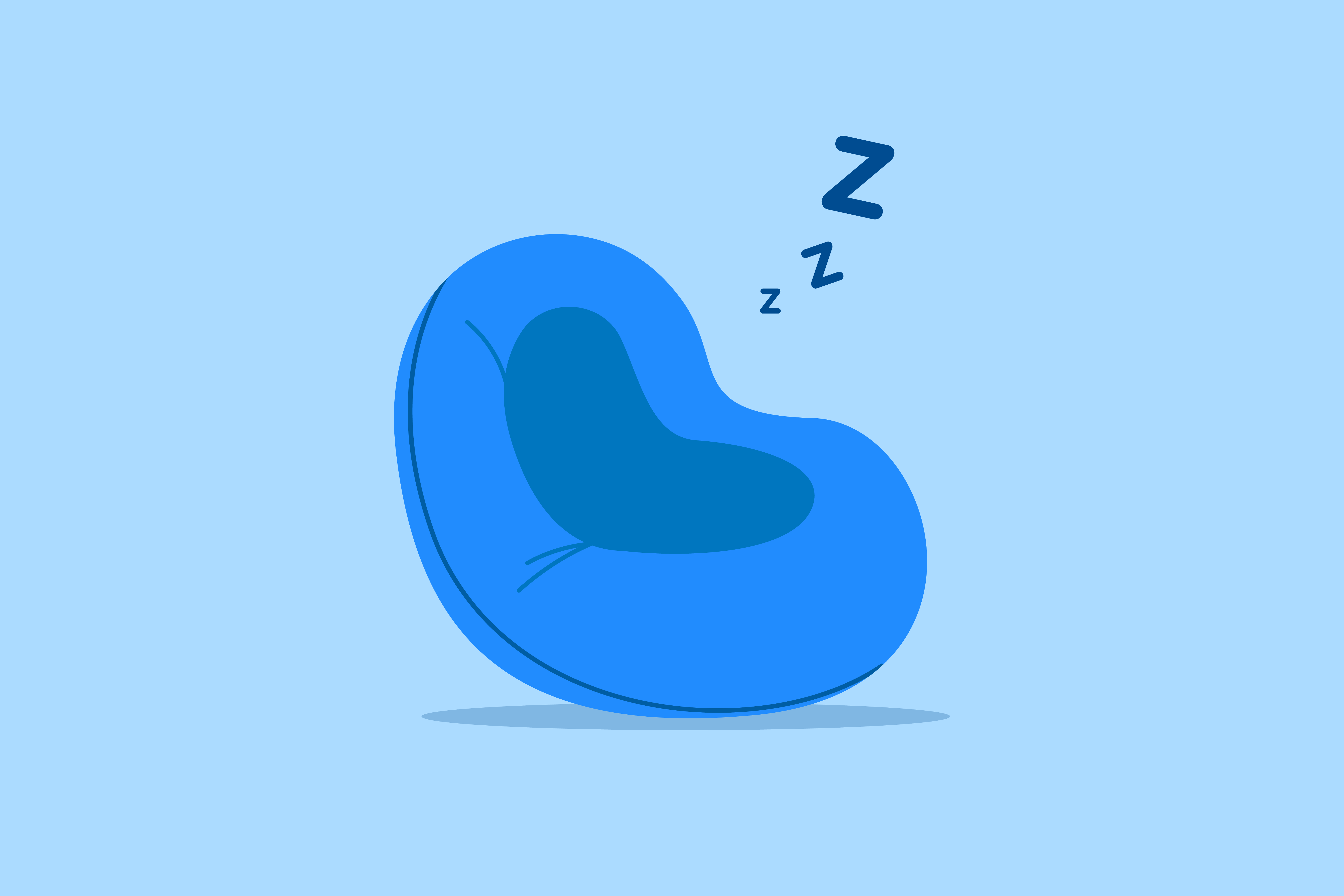Key Takeaways
- Material Matters: The type of material, such as cotton, linen, or bamboo, significantly influences how soft sheets feel. Understanding the characteristics of each material helps you choose the perfect sheets for your comfort.
- DIY Softening Techniques: Explore simple yet effective methods to soften sheets, including baking soda, white vinegar, Epsom salts, and more. These DIY techniques provide natural alternatives to commercial fabric softeners and contribute to a softer, more comfortable bedtime experience.
- Maintenance for Longevity: Proper care, including washing with quality detergent, using dryer balls, and line drying, ensures the longevity and continued softness of your sheets. Implementing these practices enhances the overall quality of your bedding and promotes a cozy sleep environment.
Imagine returning home tired after a long day and slipping into a comfy bed. The soft sheets instantly relax your body and mind, preparing you for a good night’s sleep. But what if your sheets feel stiff, scratchy, or generally uncomfortable? That discomfort can keep you awake.
Great news! You can easily soften bed sheets, whether they’re old and stiff or brand new and rough. This guide will explain why sheets feel the way they do, offer simple ways to soften them up, and highlight how soft sheets contribute to better sleep. With these tips, you’ll be enjoying a cozy sleep in no time.
Quick Guide: A 30-Second Summary
| Best Soft Sheets | Amerisleep Bamboo Sheets |
What Makes Sheets Soft?
Before diving into how to soften sheets, it helps to understand what makes sheets soft in the first place. Two main factors determine a sheet’s softness: the material and the thread count.
Material
The type of material has a big impact on how soft sheets feel against your skin. While personal preferences vary whn it comes to the best types of sheets, three materials stand out as the most luxuriously soft: cotton, linen, and bamboo.
Cotton reigns supreme when it comes to bed sheets. Long-staple cotton like Egyptian and Supima cotton are exceptionally soft, breathable, and durable. Watch out for “knock-off” Egyptian cotton though – the length of the cotton fibers is what makes them ultra-soft, so true Egyptian cotton is worth the investment.
For those concerned about overheating at night, bamboo sheets are a hypoallergenic alternative that feels silky smooth right out of the package. Bamboo fibers are naturally soft and long-lasting.
Linen sheets take a bit more work than cotton or bamboo when it comes to softness. Brand-new linen often feels quite stiff and scratchy. But after many washes, linen sheets become wonderfully soft and last for years. The more you use them, the softer they get.
See also:
- Linen vs. Cotton Sheets: What’s the Difference?
- Bamboo vs. Linen Sheets: What’s the Difference?
- Bamboo vs. Cotton Sheets: What’s the Difference?
Thread Count
Thread count refers to the number of horizontal and vertical threads woven into one square inch of fabric. Many assume higher thread counts equal softer sheets, but that’s not necessarily true. An extremely high thread count can result in an overly dense, stiff fabric that doesn’t breathe well.
The ideal thread count depends on the material. For Egyptian cotton, a count between 400-700 provides the perfect balance of softness and durability. Linen sheets fare better with a lower count of 80-130. Regardless of the number, a quality sateen weave feels smoother than percale to most people.
How to Soften Sheets
Now that you know what creates soft sheets, let’s review some simple techniques to soften up your own bed linens.
Baking Soda
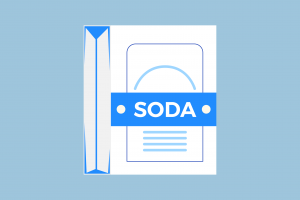 For DIY enthusiasts, baking soda (sodium bicarbonate) is a go-to for softening sheets and eliminating residue, along with other uses such as freshening up a mattress. It’s a natural deodorizer, perfect for refreshing tired sheets. Simply mix baking soda into your washing water for an easy and effective way to achieve softer, more comfortable linens.
For DIY enthusiasts, baking soda (sodium bicarbonate) is a go-to for softening sheets and eliminating residue, along with other uses such as freshening up a mattress. It’s a natural deodorizer, perfect for refreshing tired sheets. Simply mix baking soda into your washing water for an easy and effective way to achieve softer, more comfortable linens.
To soften stiff new sheets, make a solution by mixing baking soda and water in the tub, then soak the sheets for a few hours before washing. For already used sheets, add 1/2 cup of baking soda at the start of your regular wash cycle. The abrasive crystals efficiently lift dirt from short cotton fibers, eliminating detergent residue and enhancing the overall softness of the fabric.
This straightforward method works wonders for softening sheets, ensuring a cozy night’s sleep.
Vinegar
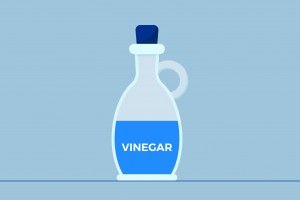 White vinegar is a fantastic natural fabric softener. The acetic acid in vinegar removes soap residue that can make sheets feel rough, and its antibacterial properties eliminate odors.
White vinegar is a fantastic natural fabric softener. The acetic acid in vinegar removes soap residue that can make sheets feel rough, and its antibacterial properties eliminate odors.
To make your sheets even softer, add half to one cup of white vinegar to your washing machine’s rinse cycle. You can either add it during the rinse or use the fabric softener dispenser for the right timing. If you want an extra boost in softness, combine it with baking soda—just be sure to add them separately to avoid any volcanic reaction. This method would lock chemicals away that may make sheets feel crisp, ensuring a generally softer and more comfortable feel. And don’t worry, no need for volcano experiments—just enjoy the softer sheets without the fizz of carbon dioxide!
Epsom Salts or Borax
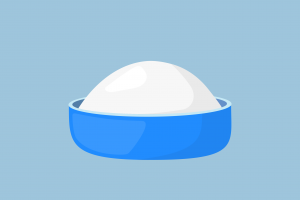 To transform stiff or scratchy sheets into a soft haven, try a heavy-duty softening technique with Epsom salts or borax in table salt and Epsom salts mixture. This dynamic duo helps draw out toxins from fabric fibers, enhancing softness.
To transform stiff or scratchy sheets into a soft haven, try a heavy-duty softening technique with Epsom salts or borax in table salt and Epsom salts mixture. This dynamic duo helps draw out toxins from fabric fibers, enhancing softness.
Here’s what you do: fill a bathtub with cool water, add around 50 grams of Epsom salts or 6 tablespoons of borax, and stir to dissolve. Submerge the sheets fully in the mixture and let them soak overnight. In the morning, either machine wash cold or rinse thoroughly by hand before line drying in the sun. This process works wonders for sheets that feel scratchy, providing a smoother and more comfortable texture.
Wash Multiple Times
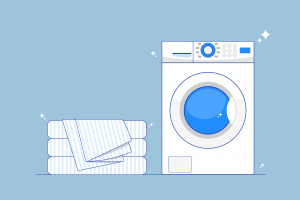 Per our recommended care guidelines, you wash sheets once a week. But washing sheets more than this can help improve their feel, particularly when they’re just out of the box.
Per our recommended care guidelines, you wash sheets once a week. But washing sheets more than this can help improve their feel, particularly when they’re just out of the box.
While it may seem like extra work, washing sheets two or three times consecutively can noticeably enhance softness. The repeated wash and dry cycles mechanically loosen fibers and remove detergent residue, leaving sheets feeling soft. This effective process ensures the removal of any detergent residue, resulting in sheets that are not only clean but also luxuriously soft.
This method is especially effective for high-end cotton and linen sheets that naturally become softer over time. To maximize results, use a gentle cycle with warm water and wash the sheets separately. Opt for low heat during drying to prevent shrinkage.
This process accelerates the natural softening, ensuring that your sheets feel soft and cozy, generally speaking. For an added touch, consider throwing in clean tennis balls or wool balls during the drying cycle to fluff up the sheets even more.
High-Quality Detergent
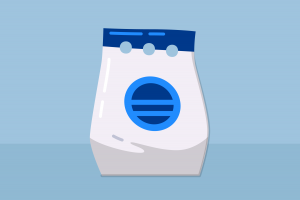 Harsh laundry detergents full of chemicals and artificial fragrances can degrade fibers, leaving sheets feeling rough. Switch to an ultra-gentle, fragrance-free natural detergent to prevent buildup and maintain softness.
Harsh laundry detergents full of chemicals and artificial fragrances can degrade fibers, leaving sheets feeling rough. Switch to an ultra-gentle, fragrance-free natural detergent to prevent buildup and maintain softness.
Look for gentle, mild detergent options or drop to only 1/4 of the recommended amount of regular detergent. Remember, too many suds lead to residue. Also, consider adding an extra rinse cycle to eliminate excess soap.
Fabric Softener
For quick softness, fabric softener is a top choice, coating cotton fibers to make sheets feel silky smooth. Yet, use it sparingly to avoid potential long-term reductions in breathability and the risk of skin irritation.
Opt for a hypoallergenic formula tailored for natural fabrics. Add the recommended amount during your regular washing machine cycle, either with detergent or on its own, to maximize effects. Keep in mind that while adding fabric softener offers immediate gratification, it’s not a permanent solution for enhancing the overall quality of your sheets.
Dryer Balls
For a natural, eco-friendly fabric softener alternative, meet your new best friends: wool dryer balls. These reusable balls soften sheets by separating and aerating the fabric as they bounce around the dryer during a regular cycle. In addition to softening, they effectively reduce static and wrinkles, offering a sustainable solution for a cozy and environmentally friendly laundry routine.
Dryer balls shorten drying time, removing moisture more efficiently than heat alone. As a bonus, they help reduce lint and pet hair. Toss 2-3 balls in the dryer to fluff up your laundry. If you don’t have dryer balls, tennis balls do the trick too.
Line Drying
Nothing beats the sun and fresh air for softening up sheets, whether it’s the benefits of morning sunlight for your body or its UV rays freshening up your laundry. Line drying allows sheets to dry slowly without high heat damaging the fibers. It also infuses an outdoorsy scent of some love.
If line drying isn’t realistic for you, at least avoid high heat settings which can shrink and roughen fabrics. Tumble dry sheets on low instead. Before hanging sheets to dry, give them a quick shake to release wrinkles.
Softening Stiff Sheets
Breaking in brand-new linens takes a little extra work. Here are four tips to speed up the process:
- Wash with baking soda during the wash cycle, and white vinegar in the rinse cycle for a powerful softening solution. The combo of acids and bases strip away manufacturing residues.
- Use very hot water for the first couple of washes to loosen fibers rapidly. Just check the laundry care instructions first, as heat can damage some delicate fabrics.
- Machine wash and dry the sheets 2-3 times in gentle settings before using them. The repeated mechanical action helps wear down stiffness.
- Try ironing your sheets. When you iron sheets, you’re essentially smoothing out the fabric, which can reduce stiffness and enhance the overall feel.
Softening Scratchy Sheets
Scratchy sheets aren’t just unpleasant, but they can disrupt your sleep. To make them silky smooth again:
- Soak in a tub of water with 1 cup white vinegar for a few hours, then wash as normal. The acetic acid works to soften the rough fibers.
- Use a gentle fabric softener made for natural fabrics. The lubricating chemicals provide immediate (if temporary) relief from scratchiness.
Softening Old Sheets
As sheets age, they can turn rough and scratchy for a few different reasons:
- Sheets pilling balls up the fibers. Use a fabric shaver, razor, or scissors to gently remove pills without damaging the material. Wash them carefully to avoid sheet pilling.
- Detergent buildup needs stripping. Wash with baking soda and vinegar to clarify the fibers. Upgrade to a high-quality natural detergent.
- Fibers have degraded over time. Try fabric softener to provide a protective layer of lubrication against roughness.
FAQs
Does a higher thread count mean softer sheets?
A higher thread count alone doesn’t guarantee softer sheets. While thread count is a factor, the type of fiber and the weave also play crucial roles. Quality cotton, like Egyptian or Pima, with a percale or sateen weave, can contribute to softer sheets. It’s advisable to consider a balanced combination of thread count, fiber quality, and weave for optimal softness.
What makes sheets silky?
Silky sheets often result from the use of certain materials and weaves. Fabrics like satin, silk, or high-quality microfiber are known for their smooth and silky feel. Additionally, a sateen weave, characterized by a lustrous surface and a higher ratio of warp threads, can enhance the silkiness of sheets.
What is the best sheet material for softness?
The best sheet material for softness depends on personal preference and budget. Cotton, especially Egyptian or Pima cotton, is a popular choice known for its softness and breathability. Silk sheets are luxurious and exceptionally smooth. High-quality microfiber can also offer a soft feel at a more affordable price.
How can you soften stiff sheets?
Stiff sheets can be softened through a few methods. Washing them with a cup of white vinegar during the rinse cycle can help break down residue and soften fibers. Adding a half cup of baking soda to the wash can also aid in softening. Additionally, using quality fabric softener or dryer sheets, following care instructions, and avoiding over-drying can contribute to softer sheets.
How can I soften sheets without fabric softener?
If you prefer to avoid fabric softeners, alternatives exist. Adding a half cup of baking soda to the wash can neutralize odors and soften sheets. White vinegar, when used during the rinse cycle, helps break down mineral deposits that cause stiffness. Line-drying sheets in the fresh air can also contribute to natural softening. Increasing the frequency of washing and avoiding overloading the machine can prevent stiffness.
Conclusion
Achieving softer sheets is not only about the manufacturing process but also involves simple and effective DIY methods. From utilizing natural softeners like baking soda, white vinegar, and Epsom salts to employing the mechanical action of repeated wash and dry cycles, these techniques enhance the softening process.
Whether you have high-quality sheets that improve with time or want to revitalize tired ones, these approaches ensure a comfortable and inviting bed, along with standard care practices like hot water washes Verified Source National Library of Medicine (NIH) World’s largest medical library, making biomedical data and information more accessible. View source once a week. So, become a clothes horse for your linens and experience the joy of slipping into luxuriously soft sheets night after night.
Cleaning Guides for Mattresses & Bedding
For mattresses:
- How to Get Stains Off and Clean a Mattress
- How to Freshen and Deodorize a Mattress
- How to Clean Vomit from a Mattress
- How to Remove Urine Stains and Smell From a Mattress
- How to Remove Blood Stains on Your Mattress
- How to Remove Ink Stains from a Mattress
- How to Remove Makeup Stains from Mattresses
- How to Get Poop Stains out of a Mattress
- How to Remove Rust Stains on a Mattress
- How to Get Sweat Stains Out of a Mattress
- How to Dry a Wet Mattress After Water Damage
- How to Get Lint Balls off a Mattress
- How to Clean a Dusty Mattress
- How to Fix a Ripped Mattress
- How to Get Rid of Bed Bugs in a Mattress
- How to Spot Mold on Mattress
For pillows:
- How to Wash and Dry All of Your Pillows
- How to Wash a Body Pillow
- How to Disinfect Your Pillow
- How to Fluff a Pillow
For blankets, quilts, comforters, etc:
- How to Clean a Comforter
- How Long Does It Take to Dry Clean a Comforter?
- How to Wash a Quilt
- How to Wash a Duvet
- How to Clean an Electric Blanket
- How to Clean a Weighted Blanket
- How To Wash a Crochet Blanket
For other bedding items:
About the author
Geoff McKinnen is a writer focusing mainly on the healthcare industry and has written articles on everything from foods to help you lose weight to the connection between Alzheimer’s and sleep. Geoff’s passionate about helping readers improve their well-being to lead happier lives. Outside of work, Geoff enjoys cycling and hiking and believes that by leading a healthy lifestyle, he can help others do the same.
View all posts